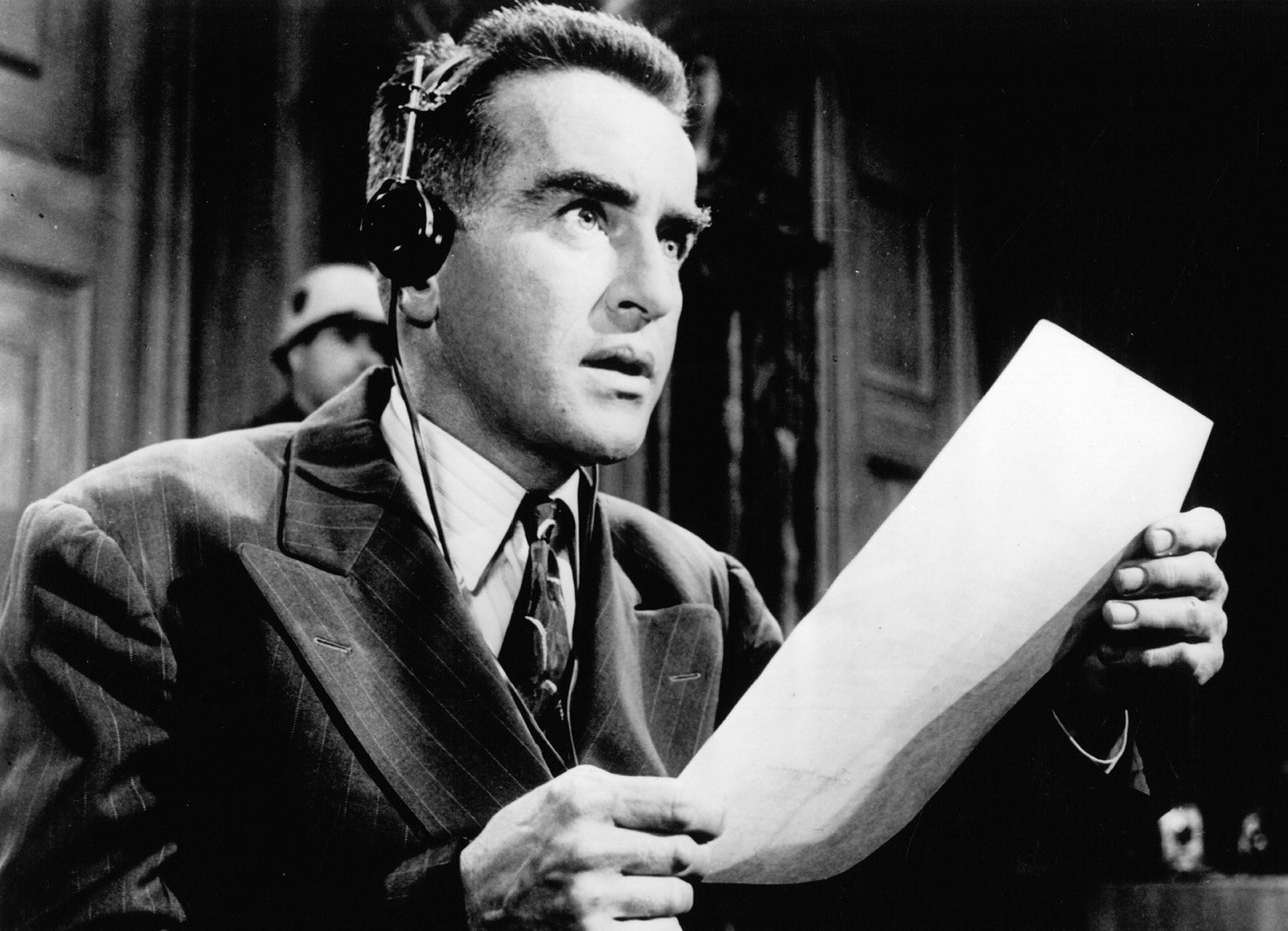
Judgment at Nuremberg opens with Judge Dan Haywood (Spencer Tracy) driving through the devastation of the war-damaged city to preside over the trial of four German judges. He is a provincial American judge nearing retirement, seconded to hear what will undoubtedly be the most important case of his career. The trial of the major war criminals has been concluded and these later proceedings are overshadowed by growing divisions between the East and West and a desire to see Germany move forward. This does not lessen the drama that unfolds in the courtroom, or the zeal with which the case is presented by the American military prosecutor, Tad Lawson (Richard Widmark). An equally determined and impassioned defence is mounted by a bold and resourceful young German advocate, Hans Rolfe (a charismatic Maximilian Schell).
The two central figures in the drama are Judge Haywood and Judge Ernst Janning (Burt Lancaster), a legal scholar of international standing but now broken and humiliated as he confronts his responsibility for what he has done. Janning and his fellow judges are charged with being complicit in forced sterilisation, murder and gross abuses of human rights. Rolfe argues that Janning was simply applying the law and furthermore that resignation from office would simply have resulted in his replacement by a far worse official. A vital part of the prosecution case is Janning’s role in the Feldenstein case, which concerned Nazi laws on racial purity prohibiting relations between Jews and non-Jews. In a dramatic development, Janning interrupts Rolfe’s cross-examination of the girl involved and insists on speaking for himself. He admits to having made up his mind to convict before he entered the courtroom and proceeds to offer an explanation of how he tolerated the injustices of Nazi law out of a misguided sense of loyalty to his country and because he thought Nazism was a passing phase.
Your organisation does not have access to this article.
Sign up today to give your students the edge they need to achieve their best grades with subject expertise
Subscribe




